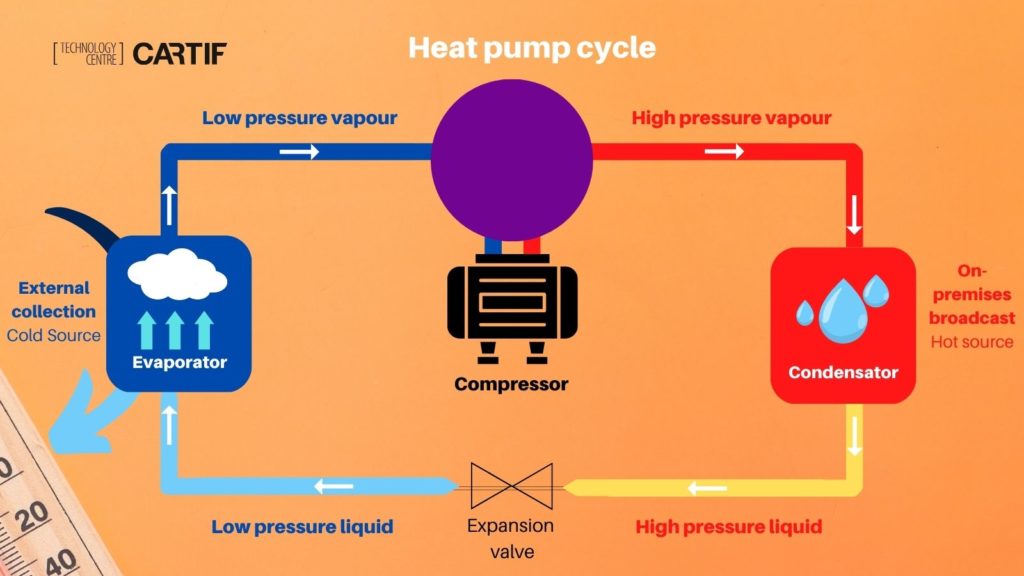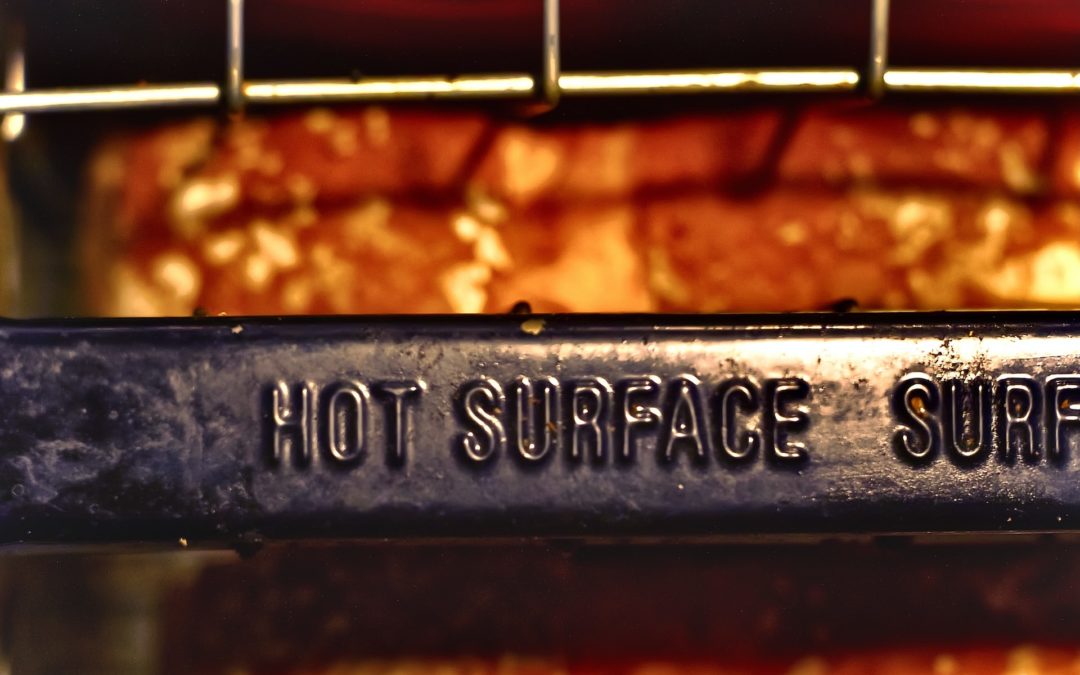“Pumps, pumps…” So goes one of the best-known songs by a Spanish artist from the early and mid-90s Spanish music scene. Although too much has happened since then, we can relate the theme to the current energy crisis we are suffering, caused by the war between Ukraine and Russia.
We are talking about heat pumps.
The concept of how heat pumps works is very simple, in fact, we all have a very similar, refrigeration machine at home, the refrigerator. Heat pumps, like the fridge, base their operation on compressing a refrigerant liquid contained in a closed circuit. This liquid is capable of collecting heat from the environment (in the case of the fridges, it collects heat from inside the fridge, cooling it) and thanks to the compression it undergoes, its temperature increases. This heat is then dissipated in the grille at the back.
The same applies to heat pumps, which are able to collect heat from the outside (even if the temperature is low) and thanks to the compression of the refrgierant, increases its temperature, thus making indoor heating possible.

Because heat pumps are highly efficient equipment, they don´t help to reduce the energy bill of our homes.
Im sure you have heard oft aero-thermal heating, right? Well, if you have any doubts about what it consists of, it is based on the operation of a heat pump that collects heat from the air in the outside environment (hence its name).
It is well known and proven that more than 40% of the energy consumed in Europe is used to air-condition homes. In this sense, heat pumps are the perfect ally as they offer us an efficiency of around 400%, that is to say, for every unit of energy they use, which is usually electrical energy, they are capable of producing 4 units of thermal energy (both heating and cooling), thus offering us high savings rates. In addition, new technologies nowadays allow us to reach higher and higehr heating temperatures due to the use of new coolants and new technologies, such as heat pumps based on acoustic waves that replace the electrical energy source with ultrasound to excite the coolant and thus increase its temperature, but…
Is all that glitters gold? Let´s take a look at it; actually when talking about savings from the use of heat pumps, we have to talk about energy savings and then..we look at the money. Calculating the economic savings provided by theseenergy savings is extremely complicated in the times in which we live, let me explain; currently the price of electricity (the most common energy source for heat pumps) is on a constant roller coaster, where you can see every day how the price changes considerably between the valley-flat-peak periods, in addition to the difference in the intra-daily price (nobody really knows why, there could be many explanations that would take several entries in this blog).

In addition to the price, the different energy sources have to be taken into account, as it is not the same thing to replace a gas or oil boiler, electric heaters or any other heating source with a heat pump. This makes it more difficult to talk about economic savings because the different energy sources also come into play
A third derivative in the economic sense, and something that heat pumps manufacturers do not usually take into account, is that in the case of installation in a home, this is not normally prepared to cover the new electricity consumption that is going to be produced by the installation of the pump, and I will explain this with an example:
Let´s imagine we have a 37kW gas boiler of supplying heat to a house and we want to replace this boiler with a heat pump. We have already mentioned that this equipment offers a ratio of 4 to 1 in terms of heat production and electricity consumption, therefore, to cover 37kW of heat, we have to consume 37/4 =9.25kW of electrical power which we will probably not have contracted and contracting them will increase the bill we are going to pay every month in terms of the fixed term, whether we use the heat pump or not. So we are saving or not? The ideal way to estimate the savings from installing or replacing an old boiler with a heat pump should be done implementing a reliable measurement and verification protocol, as has been done in the REUSEHEAT project in which CARTIF has participated in the implementation of the IPMVP. To this end, monitored data from the heat generation systems of several demonstratos have been used, connected to the internet via different IoT protocols, send this data to a common platform where the energy savings are calculated.
This savings are calculated on the basis of a mathematical model made with the data from the time period before the installation of the heat pump. Once the actual consumption after the installation of the heat pump is known, the conditions under which this consumption was achieved (weather, indoor comfort,etc.) are taken into the model and the energy that would have been consumed under the conditions prior to the installation of the heat pump is calculated.
At this point, knowing the energy that has been saved, the moneysaved by using heat pumps could be estimated economically, on the basis of an average price, a more detailed estimate of the price, or as you think best.

The REUSEHEAT project shows very satisfactory results for the use of this type of technology and the energy saving produced. In addition, heat pumps are considered a renewable energy source (when in addition to using aero-thermal energy they meet certain conditions) and clean and avoid a large percentage of CO2 emissions. There is talk that they could reduce greenhouse gas emissions by 70%.
CARTIF believes that we ,ust continue to support this type of technology and the innovations that help us to improve them, not only for heat pumps based on aero-thermal energy, but also geo-thermal energy, hydro-thermal energy,etc.
- Is all that glitters gold? (When talking about heat pumps) - 17 February 2023
